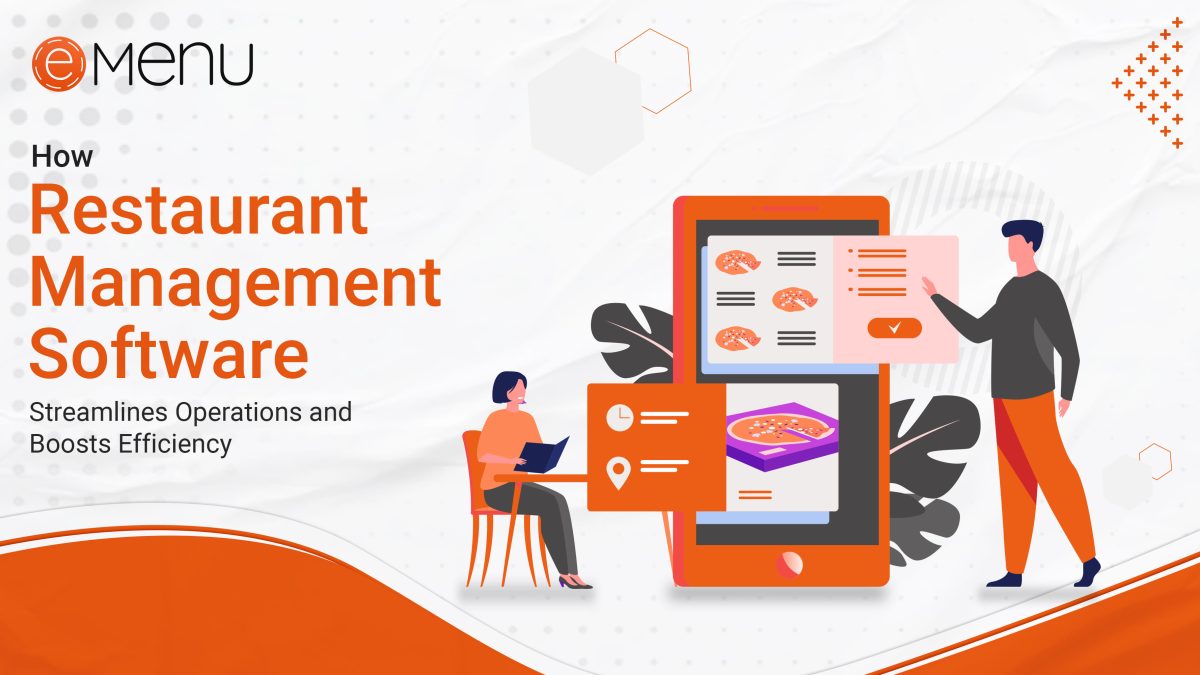The restaurant industry is highly competitive, and efficient operations play a crucial role in the success of any establishment. In today’s digital age, restaurant management software has emerged as a powerful tool to streamline operations and boost efficiency. This blog post explores the various ways in which restaurant management software revolutionizes the way restaurants operate, enabling them to deliver exceptional customer experiences while optimizing their backend processes.
The Role of Restaurant Management Software:
Online eMenu Restaurant management software is a comprehensive solution designed to handle the diverse aspects of running a restaurant. It encompasses a wide range of features and functionalities that simplify day-to-day operations, enhance productivity, and improve overall efficiency. From Restaurant tasks to Restaurant operations, the software offers a centralized platform to manage and streamline various processes.
Streamlining Restaurant Operations:
In the bustling environment of a restaurant, managing Restaurant operations efficiently is essential. Online eMenu Restaurant management software offers tools for reservation and table management, allowing customers to book tables online and providing staff with real-time updates on reservations. This helps optimize table turnover and maximize seating capacity, leading to better customer service and increased revenue. Additionally, the software integrates with the point-of-sale (POS) system, enabling seamless order taking and processing.
Enhancing Restaurant Efficiency:
Efficiency in the Restaurant operations is equally important for smooth restaurant functioning. With restaurant management software, staff scheduling and labor management become hassle-free. The software automates scheduling, taking into account factors such as staff availability and workload, resulting in optimized staff allocation and improved productivity. It also tracks labor costs and performance metrics, providing valuable insights for effective decision-making.
Supplier and procurement management is another critical aspect that software addresses. By streamlining the ordering process and managing suppliers, restaurants can ensure timely and accurate deliveries. The software facilitates inventory forecasting, minimizing wastage and optimizing stock levels. Real-time reporting and analytics capabilities empower restaurant owners and managers to monitor sales, expenses, and performance, enabling data-driven decision-making.
Customer Relationship Management (CRM):
Building strong customer relationships is vital for the success of any restaurant. Restaurant management software Customer Relationship Management (CRM) helps in creating and maintaining customer profiles, capturing preferences, and analyzing data to deliver personalized experiences. Additionally, the software facilitates the implementation of loyalty programs and targeted marketing campaigns, allowing restaurants to engage with customers effectively and increase customer retention.
Ensuring Data Security and Accessibility:
Data security is a paramount concern in today’s digital landscape. Restaurant management software offers robust security measures to protect sensitive customer information and business data. Cloud-based solutions provide data backup and ensure accessibility from anywhere, anytime, allowing owners and managers to monitor and manage their restaurant’s operations remotely. User access control features further enhance data privacy and confidentiality.
Case Studies: Success Stories of Restaurant Management Software Implementation
Real-life examples of restaurants that have implemented restaurant management software can provide valuable insights into its effectiveness. Case studies highlighting specific improvements and outcomes achieved through the software demonstrate how it has helped restaurants streamline their operations, enhance efficiency, and deliver exceptional dining experiences.
Challenges and Considerations:
While restaurant management software offers numerous benefits, it’s essential to consider potential challenges and factors when selecting the right software. Factors such as cost, scalability, user-friendliness, and integration capabilities with existing systems should be evaluated before making a decision. Addressing these considerations ensures a successful implementation and maximizes the software’s potential.
Conclusion:
Restaurant Management Software has become a game-changer in the industry, revolutionizing the way restaurants operate. By streamlining operations, enhancing efficiency, and optimizing processes, this software empowers restaurants to deliver exceptional customer experiences while driving profitability. As technology continues to shape the future of the restaurant industry, embracing restaurant management software becomes essential for those seeking.

